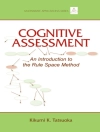Do you have a best friend? If so, you probably share the same race and social status. Why is this so? Does social structure determine your choice of friends? Or do other factors cause you to choose friends? Co-authors Blieszner and Adams explore these issues and offer a theoretical framework which incorporates both sociological and psychological perspectives on friendship. They use this model to synthesize the research theoretically, identify gaps in the literature, scrutinize the methods used, and produce a map for future research. Adult Friendship also covers historical conceptions of friendship, the internal structure of friendship, and the phases of friendship. Clearly written yet scholarly, Adult Friendship is perfect for students, researchers and professionals in psychology, sociology, communication, gerontology, family studies and social work. ‘The analysis is ably argued, identifying the contributions to and gaps in the field and challenging others to give attention to the theoretical and methodological issues in the emerging research on adult friendship.’ –Contemporary Sociology ‘Adult Friendship is a noteworthy publication in the emerging area of the study of personal relationships. . . . A useful synthesis of theory and research on close relationships over the life cycle. . . . suitable for students and others wanting an introduction to the topic, yet also gives professionals more knowledgeable with this literature a fresh, distinctive perspective on it. . . .Blieszner and Adams′ chapters are concise and internally well organized. . . . a worthwhile read for researchers, students, practitioners, and laypersons concerned with the study of friendship across the life span.’ –Journal of Marriage & The Family ‘This volume is an important addition to the useful Sage Series on Close Relationships. It treats a topic that has been too frequently ignored in the area of close relationship research. . . . The coverage of the literature in this volume is especially good due to the tight organizational scheme that facilitates summaries of many different findings. . . . In sum, there is no doubt that both researchers and students will find this volume to be extremely useful. This is a well-organized and comprehensive book that provides a concise summary of research on adult friendship, both from sociological and psychological perspectives. Significant gaps in the literature are identified and methodological criticisms are raised. Finally, the authors provide clear guideposts for future research on a topic that has often received too little attention in the area of close relationships.’ –ISSPR Bulletin
表中的内容
An Integrative Model of Friendship
History of Friendship and Friendship Research
The Internal Structure of Friendship
Friendship Processes
Phases of Friendship
Adult Friendship Intervention












